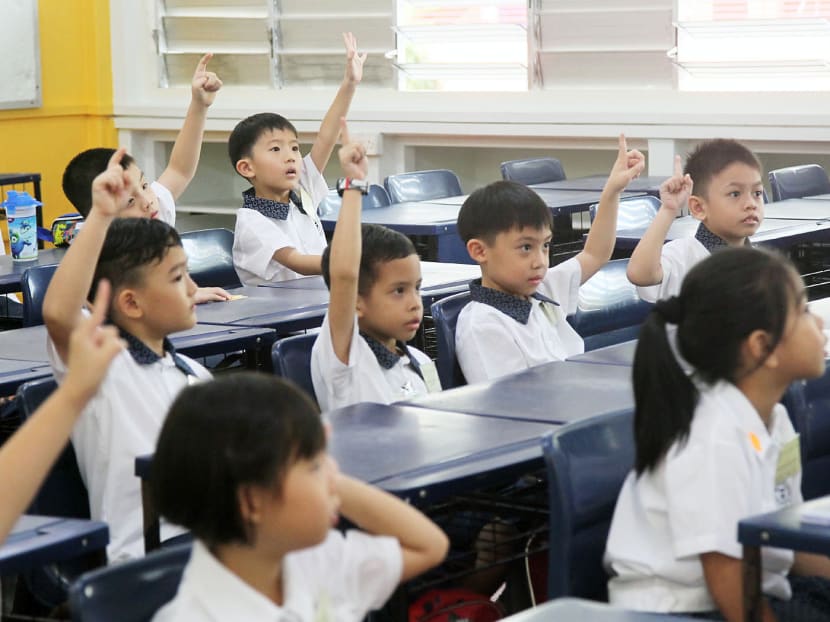Four in 10 S’porean children aged 6 to 9 are sleep deprived
SINGAPORE — A recent study has found that about four out of 10 primary school children aged six to nine are not getting enough sleep and the use of electronic devices before bedtime could be affecting their sleep, as well as their ability to stay awake in class.
SINGAPORE — A recent study has found that about four out of 10 primary school children aged six to nine are not getting enough sleep and the use of electronic devices before bedtime could be affecting their sleep, as well as their ability to stay awake in class.
The study by Nanyang Technological University undergraduates and the National University Hospital (NUH) polled 307 respondents, comprising parents with children from 6 to 9 years old, between November and December last year. The participants asked about their perceptions of sleep, their own sleep hygiene and their children’s.
It found that 57.6 per cent of the children got less than nine hours of sleep on a school day when they should be clocking nine to 10 hours of sleep. And 19.8 per cent of them got less than nine hours of sleep during the holidays.
Four of 10 of the children surveyed felt sleepy during the day, which the study said is a sign of sleep deprivation, and nine out of 10 parents did not think their children had sleep problems. At least a third of children (37 per cent) did not have regular bedtimes, while 35 per cent of them lacked a bedtime routine.
As a result, almost half the children (45 per cent) fell asleep while travelling while six of 10 were found to be overactive during the day.
The survey also looked at what the children did before going to bed. The most popular activity for them an hour before bedtime was watching television (74.6 per cent), followed by the use of smartphones (58 per cent), and the use of computers (30 per cent).
Parents fared just the same. Almost three out of four (71 per cent) watched television an hour before bedtime, while 83.7 per cent of them used their smartphones, mostly to check social media sites.
Speaking at a media conference, Dr Michael Lim, Consultant at the Division of Paediatric Pulmonary and Sleep at NUH, said the children were learning their pre-bedtime activities from their parents. “They see (their) parents using smartphones (and) they know that it’s probably okay to look at smartphones,” he said.
As for whether this was a cause for concern, Dr Lim said the trend was striking because the light emitted from such electronic devices affects the children’s sleep hormones and leads to poor sleep quality.
Parents should check for sleep deprivation in their children by looking out for signs such as hyperactivity, daytime sleepiness and difficulty waking up in the morning.
Dr Lim said parents should have a regular bedtime routine for their children an hour before bedtime as it helps calm and relax them. He added that parents should keep all electronic devices away from the bedroom, so that their children would not be distracted. A lack of sleep can have a negative effect on their kids’ academic performance, added Dr Lim.
Parents TODAY spoke to said their child gets at least eight hours of sleep a night and felt that this was sufficient. They also said they had no difficulties tugging them to bed.
Regional manager Adrain Koo, who has two sons aged six and nine, said: “If they can focus (during) the day, I feel that less sleep is okay.” The 37-year-old added that although his sons use their iPads every night before bedtime, it was easy to get them to sleep once the bedroom lights are turned off.
Another parent, housewife Felicia Ng, said her nine-year-old son sleeps at 10.30pm daily. “It’s not hard to get him to sleep,” said the 36-year-old. “It’s become a habit. He knows that’s the time to sleep”.







